Poor sex education, social exclusion leading mums in Malaysia to abandon babies
The country is grappling with the problem of baby dumping as confused and fearful women struggle with various restrictions, from sex education to abortion access, and condemnation of single mothers.
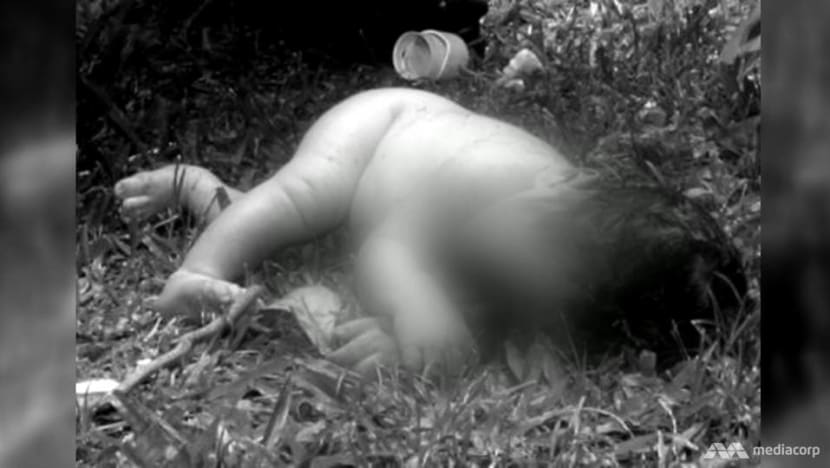
For every baby found abandoned, experts reckon that many more cases go unreported.
KUALA LUMPUR: Every year, over 100 newborns are found abandoned in rivers, mosques, toilets and rubbish dumps in Malaysia. More than 60 per cent of them end up dead.
Sometimes their bodies are charred beyond recognition, according to non-governmental organisation OrphanCare Foundation.
And even as the official number of discarded babies rises, experts reckon that many more cases go unreported.
“For every baby dumped, there would be another 10 to 20 or even 30 babies who’ve never been found and never been recorded,” said Dr John Teo, a medical adviser to the Federation of Reproductive Health Associations, Malaysia.
Many unwed mothers who take that road of desperation do so out of ignorance — a reflection of the lack of proper sex education — or feelings of isolation caused by conservative social attitudes.
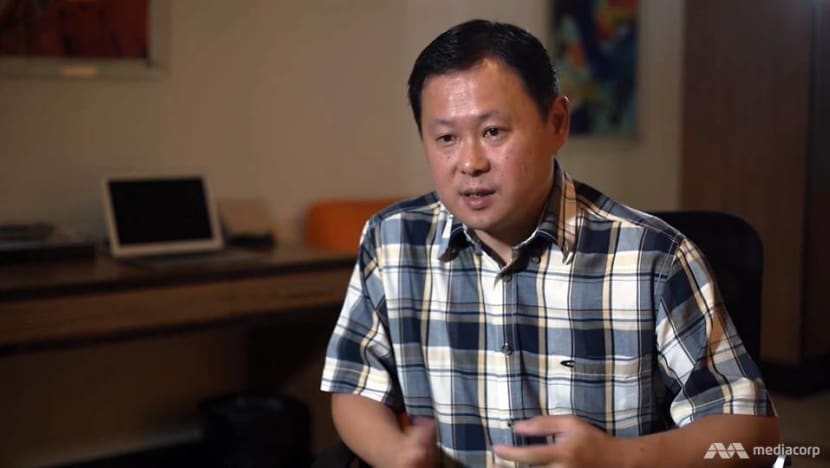
To Ms Rofina (not her real name), for example, the birth of her child came as a shock. The then 17-year-old, who gave birth in her toilet at home, did not even know she was pregnant.
“I took the umbilical cord, and I cut it bit by bit with the nail clipper. It was quite tough, so I pulled it until it tore,” she recounted.
Then I opened the door, took it to the corridor, and I let it go (over the ledge).
She was later arrested and sentenced to 12 years’ imprisonment for infanticide. She was the first person to receive that severe a sentence.
Since her case in 2013, however, inadequate sex education, societal taboos and the fear of being stigmatised are contributing even more to the problem of unwed mothers dumping their babies — and the programme Get Real explores the issues. (Watch the full episode here.)
WATCH: Dumped: Malaysia's "unclean" babies (4:01)
THEY DON’T KNOW THEIR ANATOMY
In Muslim-majority Malaysia, teaching youth about sex is seen as promoting promiscuity, so sex education in schools is fairly basic and focuses on abstinence. Parents also feel uncomfortable or shy when their children ask them about sex.
But what is worrying is that many Malaysian women do not understand their anatomy or know where babies come from, pointed out clinical psychologist Vizla Kumaresan.
“It might be a shock (to some women) to find the baby coming from that particular spot where things don’t come out from, so they’re completely unprepared for the situation. They’re alone,” she said.
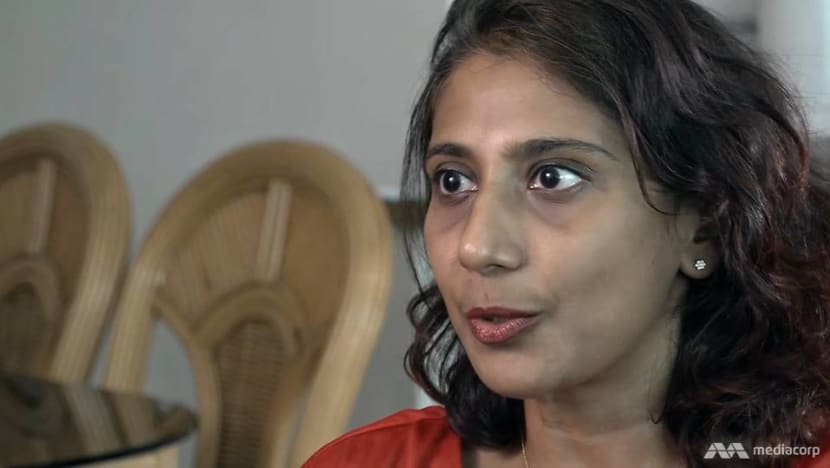
That was what happened to Ms Rofina, who did not realise she had been raped after a co-worker had drugged her drink.
“She lacked very basic knowledge about sexual intercourse. She didn’t understand it completely,” said her lawyer Ravin Singh, who managed to reduce her sentence to five years on appeal.
Apart from the reproductive systems, and how boys must respect girls, little else — including contraception — is taught in sex education classes at primary school, said teacher Y M Raja Nadiah.
Of the 18,000 teenagers who get pregnant each year on average, “90 per cent of them don’t use contraceptives or use very ineffective methods”, pointed out Dr Teo.

Because of this lack of comprehensive sex education in schools, NGOs and grassroots initiatives are filling the void. And these are often religiously driven.
Ms Zarina Rie, who volunteers in Baitul Fiqh, a shelter for women and girls, believes it is a lack of religious knowledge that leads girls to have premarital sex.
“There are more and more cases like this, and they think it isn’t wrong,” she said.
So to me, it’s most important to have religious education.
‘UNCLEAN BABIES’
Focusing on abstinence, however, could perpetuate a culture of shame that prevents unwed mothers from seeking appropriate help.
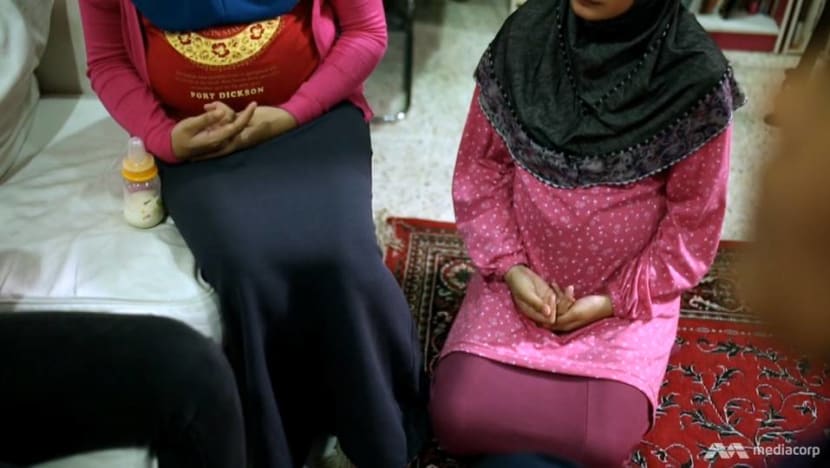
And without help, these girls tend to make bad decisions, like abandoning or killing their babies, observed Ms Vimmi Yasmin Abdul Razak, the founder of Rumah Kita, a shelter for unmarried pregnant women.
“They tried to get help and advice from friends or family, but they received no help. So when they … don’t get any support, they take the decision to cover the shame for their families,” said the 45-year-old.
Most families would not accept what they perceive as “unclean babies”, noted social worker Zeeda Aziz, who has been helping unwed teenage mothers for six years now.
“Because you’ve tampered with the holiness of the community, you must be kicked out,” she added. “Dumping the baby seems the best choice for them.”
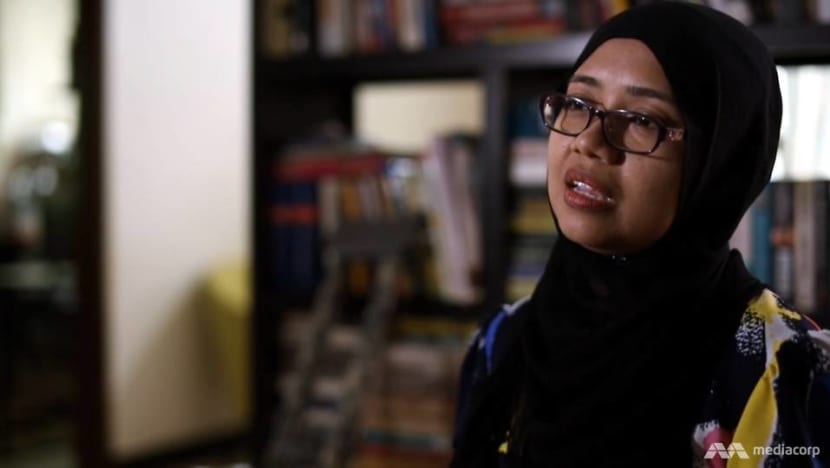
Take, for example, Ms Sheila (not her real name), who was told two years ago that if she wanted to give birth without informing her parents, she could approach a welfare department that helps with childbirth arrangements for unwed mothers.
But there she was notified that since she was impregnated out of wedlock, she purportedly required parental consent, even though she was 21 at that time, of legal age.
“For those who want to hide their pregnancy and childbirth, it’ll become a big issue,” said Ms Zeeda, who cited this a possible cause of baby dumping.
They’re being treated badly. I was there, and I was quite surprised how vulgar and how cruel the conversation was.
Ms Sheila gave birth in hospital later, and described being “treated like trash” there.
“When I was struggling to get up to bathe … the nurse didn’t even bother to help. It was all because I was a single mother,” she recalled. “I lost all the energy to give birth … I just wanted to die.”
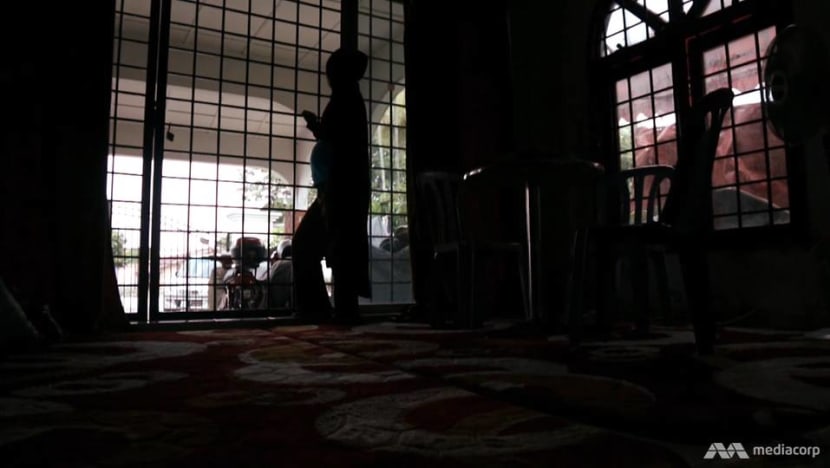
ABORTION FROWNED UPON
These social prejudices and attitudes towards unwed mothers fuel the taboo on abortion, not to mention that getting an abortion is a challenge facing unwed women.
Curbs on access to abortion pills, rendering them legally unavailable for sale, have turned many teenagers to makeshift abortion pills, which may not work. This is another reason girls end up dumping their babies, said Ms Zeeda.
Not many people know, however, that the law permits abortion if continuing with the pregnancy would have an adverse effect on the woman’s physical or mental health.
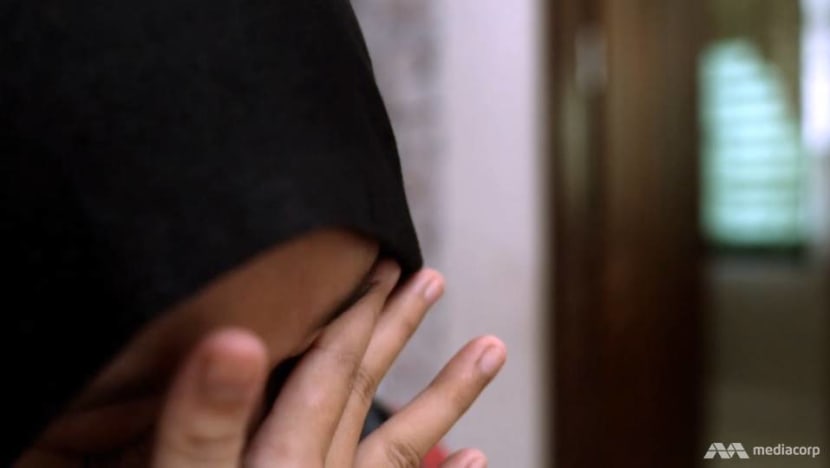
For example, a study of one-stop crisis centres in government hospitals found that 60 per cent of their personnel did not know pregnancies caused by rape could be terminated, cited Ms Syirin Junisya Mohd Ali, executive director of the Federation of Reproductive Health Associations, Malaysia.
Finding a doctor willing to operate an abortion is also difficult. Even those who are willing to provide abortion services face pressure from their peers and bosses to withhold such services.
Ms Syirin Junisya’s group, which advocates policies that support responsible family planning, helps by directing callers to doctors who will perform abortions legally.
BABY HATCHES, BUT IS THAT ENOUGH?
To better solve the problem of baby dumping, changes are needed. And for some, a baby hatch is a safe way to abandon their babies.
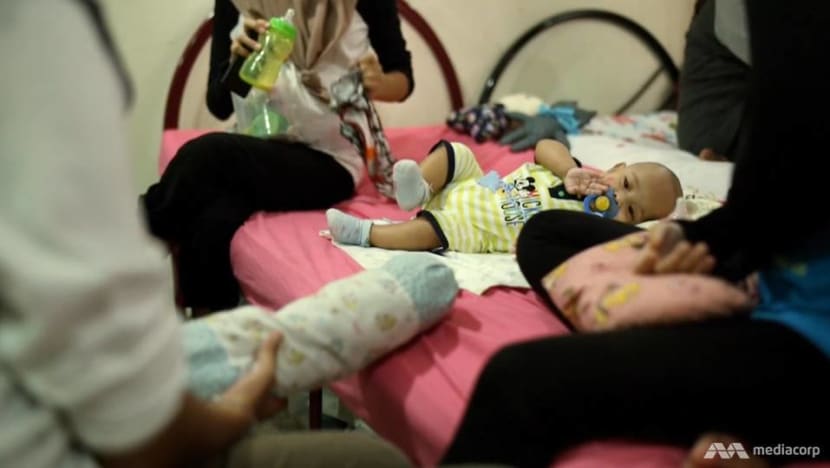
Malaysia’s first baby hatch was opened in 2010. And while it took OrphanCare more than three years to convince the authorities before that could happen, there are now 11 baby hatches across the country.
The NGO, which has received nearly 280 babies through its baby hatches and helps to find them suitable homes, was initially blamed for promoting premarital sex.
“But it’s the social stigma that should be addressed,” said OrphanCare board trustee Nor Aishah Osman.
Parents should play more of an important role. And the public also shouldn’t judge a person because she has done something wrong.
Deputy Prime Minister Wan Azizah Wan Ismail, who is also Women, Family and Community Development Minister, previously addressed the need for baby hatches so that newborns could be left safely by their mothers.
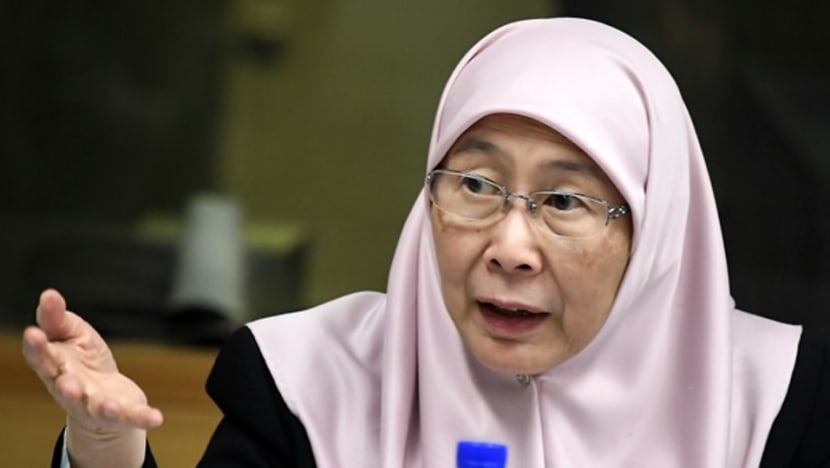
“It’s a good alternative, to curb cases of baby dumping,” she said in September. “This is definitely better for the babies, rather than them being dumped. And sadly in some cases, they couldn’t be saved.”
Dr Teo thinks the state needs a radical change in policies and also a well-funded, holistic national plan to tackle the issue.
He said: “We have NGOs and various groups doing bits and pieces and things like that. But it’s retail change; we need wholesale change. And that ranges from government policies to community attitudes to training of teachers.”
Watch this episode of Get Real here. New episodes air every Monday at 9pm.















